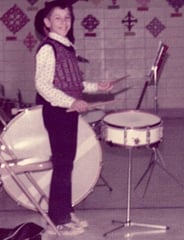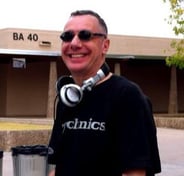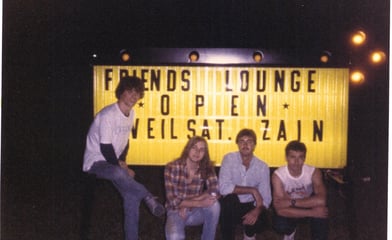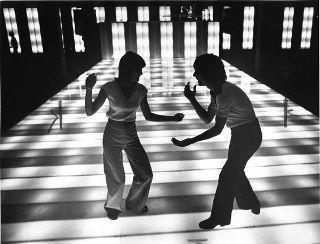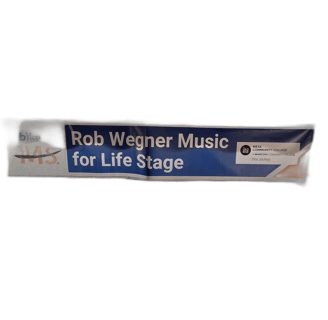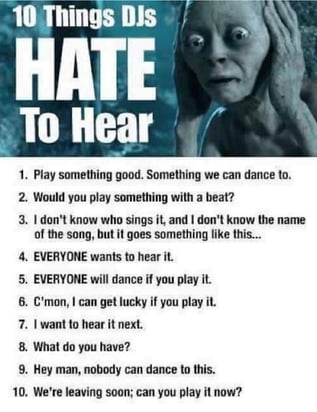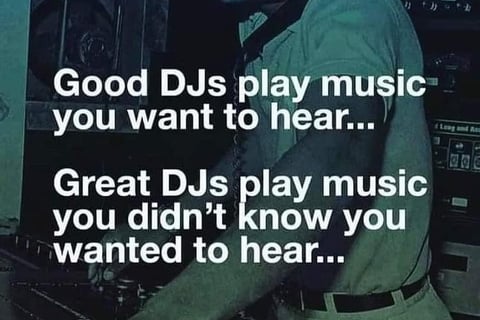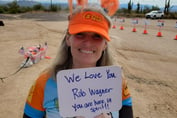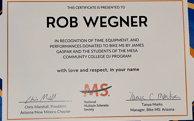Rob Wegner
Thanks for visiting! Robwegner.com is the official website of Rob Wegner, a DJ-music producer, artist, political writer, actor, and the father of college accredited DJ education. This domain was first created in October 2002. You will find Rob Wegner music, videos, a DJ tips blog, biography, links, pictures, press, merch, and more! Please show support by following Rob on Youtube and Spotify.
"I have a history of helping others" as Rob Wegner puts it. "I'm politically progressive; pro-environment; anti-racist; anti-misogynist; against war but support veterans (whom are its victims); pro-European Union; pro-animal rights; anti-selfishness; love music; love Chicago (particularly the Cubs) and Los Angeles (particularly its influencer culture and its food); pro-education/teachers; and love science -- such as David Sinclair's work." "My love of science (secular humanism) comes from my polymer chemist father, who invented/patented a flame retardant foam used on airplane seat cushions to save lives from toxic fumes during a fire."
"I got interested in music at a very early age" according to Rob Wegner. "I would bang on my Italian-chef mother's pots and pans and was fascinated by the drums. So my parents took me to a wedding down Archer Avenue to Willow Springs near Chicago. I was less than 5 years old. At the wedding, I snuck back stage to watch the drummer. He saw me watching him. During dinner, being a small boy, I crawled under a table and found a ring. I gave it to my father. At roughly the same time, an announcement was made that a wedding ring was missing/lost. My father quickly stood-up and said 'my son found your ring.' The entire room erupted in applause. After dinner, I returned to watching the drummer, except this time he waved me over to watch closer. When his set ended, he pulls out a snare drum and gives it to me. Perhaps it was the news about the ring? -- but that moment would change my life forever. Fast forward to 5th grade and the school's band instructor, learning that I owned a snare drum, gave me a position on the school band."
"I became obsessed with drums and would eventually get a drum set" as Rob Wegner describes it. "I would play in neighborhood rock bands and get lessons from jazz-rock legends such as Billy Cobham and Carmine Appice. I also got to meet Rod Morgenstein and shake hands with Buddy Rich (perhaps the greatest drummer of all time). I asked him about Gene Krupa and he just looked at me."
"Performing drums in rock bands was one of the best parts of my life" according to Rob Wegner. "I joined a band called Zain and actually made a living for two years performing live shows" as Rob puts it. "We even recorded original music at the legendary Reflection Sound Studios, which is known for recording artists such as James Brown and R.E.M."
"As much as I loved drumming in a band, it eventually became apparent that getting four musicians on the same page is not an easy task" as Rob Wegner describes it. "For example, you would try to book a show but couldn't do it because a member had other plans."
"That is the main advantage of becoming a DJ, as you are your own boss" as Rob Wegner puts it. "On the other hand, you don't have a support network like your band mates. Also, it's much harder to become a DJ today than when I started because there are so many people calling themselves 'DJ'. I think one of the reasons why I started Disc Jockey 101 and the DJ classes at Scottsdale Community College is because there can't be any holes in the knowledge. The new DJ's need to know the differences between hip hop, trip hop, breakbeat, D-n-B, house, techno, trance, and more. They need to know how these genres started. They also need to avoid bad habits like dead air, licking the back of a tone-arm cartridge (corrosion issues), not saying "aahh'' on the microphone, not being rude to customers, and so much more.
When I started, it was all about the dance floor experience. The dancers were the stars. The lights were on them. The DJ was in the dark. Now it's flipped around and this has turned DJ's into 'superstars.' This has hurt dance clubs as the focus shifted towards the celebrity-performer instead of the dancer-customer. No celebrity = no reason to go there" according to Rob Wegner.
"I like the notion of 'superstar DJ's,' but the wrong DJ's are being called 'superstars.' It should be the resident DJ's at the biggest nightclubs in the biggest markets, such as New York, Chicago, Los Angeles, Miami, and so on. It should be the 21st Century version of Studio 54's Jellybean Benitez and François Kevorkian. It should also be the most successful mobile DJ's by market and the most talented turntablists. The majority of 'DJ's' being called 'superstar' today don't know the first thing about reading a room, building nights, constructing sets, turntablism, and all the bullshit that DJ's go through. Instead, they produce a hit song and tour the world as 'DJ's' promoting their songs earning hundreds of thousands of dollars. Although, there are credible exceptions, such as Bad Boy Bill, Danny Tenaglia, Roger Sanchez, Richard Vission, Laidback Luke, and a few others.
Speaking of it, perhaps the single most important thing a new DJ needs to learn is reading the room. This is very difficult to learn and one of the advantages more experienced DJ’s have over the new DJs. Reading the room means paying attention to customer responses to your music. Are they boppin their head to the beat? Are they walking on or off the dance floor? Is it too loud because you can see them yelling into one another’s ear in an empty room? Is it obnoxious? Are they walking out of the room? Are they having a good time because that is your job? But at the same time, as my friend Timothy Heit puts it, if you're having a good time, then they should also be having a good time.
ConstructIng music sets is also important. It comes down to dividing the night into three parts: a 'pre-show' where the DJ plays chill music at a lower volume and no lights; a 'show' where the volume, energy, and lights increase; and a 'post show,' which is often the last hour or after hours and the music can get creative and/or experimental.
It is the 'show' period where the DJ constructs sets.
A 'set' usually consists of a specific style/genre of music. Like a book writer's paragraph, the set should begin with an opening sentence - or song - that clearly defines what you're going to play. Usually, the opening song of a set is a known hit or banger. The length of your set will depend on crowd response, as well as the extent of your "pace" within the context of the night. Ideally, you should use a "transition" song when switching to a different genre/set. For example, if going to house from disco, try a disco-house song for a transition. This is analogous to a writer's transition sentence.
If trying to 'break' a new song, try sandwiching that song between two known hits.
Perhaps the biggest mistake made by new DJ's is a failure to 'pace' the night. It's important to use your biggest songs to generate energy, but then pull back once you accomplish that charge. If you play your biggest songs back-to-back, you will burn out your crowd and have weaker songs to play towards the end of the night -- and possibly an emptier room due to burn out.
'Rotating the dance floor' is an old school nightclub concept of generating drink sales by sending dancers to the bar. The idea is to play one genre of music, such as hip hop, for seven or so songs and then transition to a new set of songs based on a different genre of music, such as rock. The hip hop dancers, perhaps thirsty from dancing, go to the bar and spend money, while rock music fans are building a thirst on the dance floor. The club where I first learned this strategy actually gave their DJ's a financial bonus if drink sales improved. A responsible nightclub buys customers that drank too much a free ride home." as Rob Wegner explains it.
The bio goes into further detail about becoming a DJ, the DJ degree, acting in Hollywood, education, political involvement and more.
Rob Wegner drums in 5th grade band using the snare drum given to him at the Willow Springs wedding.
Rob Wegner with his high school band Zain
Rob Wegner first learned to DJ by drumming (located at top right) over dance music at this large nightclub. The club used a GLI PMX 9000 Preamplifier/Professional DJ Mixer and Technics 1200 DJ Turntables. The dancer-customers were the stars.
